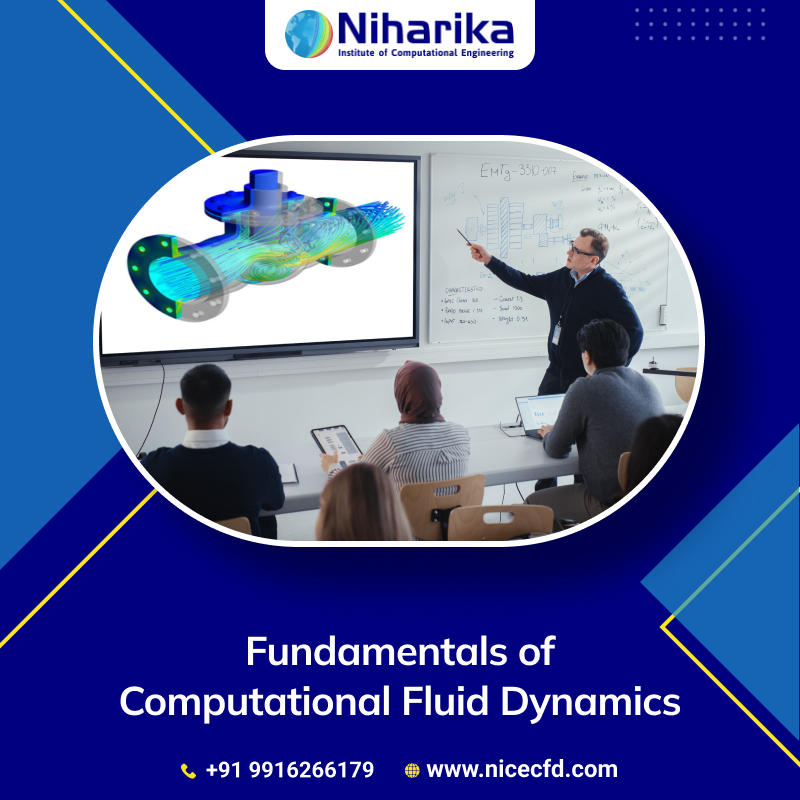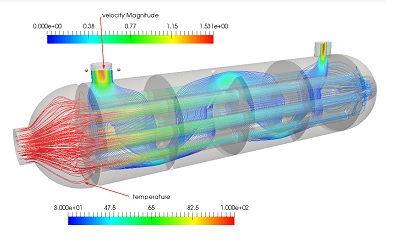As technological landscapes continue to evolve, one area gaining significant traction in educational spheres is computational fluid dynamics. This surge is not merely a trend; it represents a transformative shift in how students perceive and engage with fluid dynamics, simulations, and advanced engineering. Traditionally associated with engineering, CFD has broken free from disciplinary constraints. Its applications now extend across diverse fields, including aerospace, biomedical engineering, environmental science, and renewable energy. Because of this interdisciplinary nature, more and more students pursuing varied academic paths are signing up for CFD courses.
CFD offers students a gateway to a diverse array of career opportunities, blending the principles of fluid dynamics with cutting-edge technology and numerical simulations. In this blog, we will explore the exciting and multifaceted career paths that CFD opens up for students venturing into this interdisciplinary domain.
Top 5 Career Opportunities in CFD for Students
The career opportunities for students well-versed in computational fluid dynamics are vast and diverse. Read on to learn more about them.
1 Aerospace Engineering
CFD unlocks a gateway to pioneering advancements. Students proficient in CFD find themselves at the forefront of designing, optimizing, and innovating aircraft components. This includes aerodynamic analysis, propulsion system simulations, and the enhancement of overall aircraft efficiency. By leveraging CFD, students contribute significantly to the evolution of aviation technology, shaping the trajectory of air travel into new realms of efficiency and performance.
In case you want to learn CFD but do not have the time to commute to an institute, you can enroll in CFD courses online. Institutes provide a wide range of online classes to facilitate flexibility, allowing students to balance their studies with other commitments.
2 Automotive Industry
Within the automotive industry, CFD has become a driving force behind innovation. Students with CFD expertise play a crucial role in simulating and optimizing vehicle aerodynamics, directly influencing the design of fuel-efficient and high-performance automobiles. This involvement extends to reducing drag, improving efficiency, and steering advancements in automotive design. Proficiency in CFD positions students as key contributors to the ongoing evolution of the automotive sector, where the principles of fluid dynamics are harnessed to enhance every aspect of vehicle performance.
3 Oil & Gas Industry
Students with CFD proficiency can enter the dynamic arena of the oil and gas industry, mastering complex fluid dynamics challenges. CFD serves as a powerful tool for simulating fluid behavior within pipelines and reservoirs, which allows students to optimize extraction processes, improve pipeline efficiency, and ensure the safe transportation of valuable resources. All you need to do is choose the right CFD courses. The right courses provide a structured curriculum and cover foundational principles and advanced applications to ensure a comprehensive grasp of CFD concepts.
4 Biomedical Engineering
The application of CFD transcends traditional engineering boundaries and extends into the innovative field of biomedical engineering. Here, students proficient in CFD have the unique opportunity to simulate biological fluids, such as blood flow and respiratory patterns. This interdisciplinary approach allows them to contribute directly to advancements in medical devices and treatment strategies. Students become pioneers in integrating fluid dynamics into healthcare, where their expertise plays a pivotal role in improving medical technologies and optimizing patient care.
5 Environmental Modeling
Environmental agencies and consulting firms increasingly rely on CFD simulations for accurate modeling of air and water quality. By studying the dispersion of pollutants, students can contribute to sustainable environmental practices. Through CFD, students can also actively engage in careers dedicated to safeguarding the planet, ensuring a cleaner and healthier environment for current and future generations.
Final Thoughts
Proficiency in CFD unlocks diverse career paths, ranging from aerospace and automotive engineering to renewable energy and biomedical research. Students become highly sought-after professionals in a job market hungry for specialized skills. So, should you want to learn CFD, join Niharika Institute of Computational Engineering. We provide comprehensive curricula covering fundamental principles, advanced techniques, and practical applications to ensure that students receive a well-rounded education in CFD.













